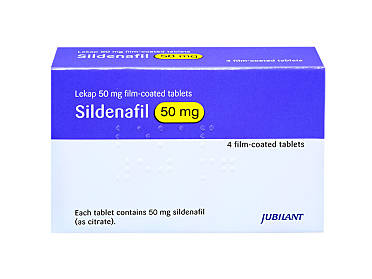What Are the Side Effects of Viagra?

Medically reviewed by
Dr Babak AshrafiLast reviewed: 06 Jun 2022
Viagra is a medicine used to treat erectile dysfunction, or impotence. Erectile dysfunction (ED) is when you find it difficult to get and maintain an erection. Viagra belongs to a group of medicines called phosphodiesterase type 5 (PDE5) inhibitors. PDE5 inhibitors work by increasing blood flow to the blood vessels in the penis.
Viagra can lead to side effects, but these are usually mild and short lived, and not everyone gets them.
Understanding the possible side effects of Viagra can help you decide if it is the right medication for you to help with erectile dysfunction. This guide will go through the most common side effects you may experience with Viagra, and tips on how to avoid them.

What are the most common side effects of Viagra?
The most common side effect of Viagra is a headache. Headaches may be experienced by more than 1 in 10 people who take Viagra for erectile dysfunction.
Other side effects of Viagra are less common, for example:
- nausea (feeling sick)
- facial flushing (redness)
- hot flushes
- indigestion
- changes to vision, including colour tinge, blurred vision and visual disturbance
- stuffy nose
- dizziness
These side effects of Viagra are mild and often go away within a few hours.
Does Viagra have any long term side effects?
Viagra is not associated with any long term side effects. Most side effects with Viagra are short lived. Side effects should stop if you stop using Viagra to treat erectile dysfunction.
Are side effects different for generic or over the counter Viagra?
There are no differences in side effects for generic or over the counter Viagra.
Viagra is a brand name for the medicine called sildenafil. Both generic and over the counter Viagra contain the same active ingredient, sildenafil citrate. Viagra and Sildenafil have the same effects on erectile dysfunction and the same risk of side effects.
How to reduce the side effects of Viagra
There are some tips you can follow to help avoid, or reduce side effects when taking Viagra, such as:
- always take Viagra exactly as instructed by your doctor or pharmacist
- do not take more than the recommended dose of Viagra
- let your doctor or pharmacist know if you experience any side effects with Viagra; you may be able to switch to a lower dose
- do not take Viagra more than once a day
- avoid drinking excessive alcohol when taking Viagra, as alcohol can make it harder to get or maintain an erection
- do not drink grapefruit juice whilst taking Viagra
- if you experience headaches whilst taking Viagra, make sure you drink plenty of water
- do not take Viagra at the same time as other medicines for erectile dysfunction
- to avoid drug interactions, tell your doctor about any other medicines you are taking (or planning to take) before taking Viagra
- tell your doctor about any other health conditions or illnesses you have before taking Viagra
- do not take Viagra if you are allergic to sildenafil or any of the other ingredients
Alpha blockers are commonly used to treat high blood pressure and also used to treat an enlarged prostate. If you take Viagra at the same time as alpha blockers, you may have dizziness or light headedness if you stand up quickly. You can reduce this by making sure you are taking a regular, stable dose of alpha blockers before taking Viagra.
Am I likely to get side effects from Viagra?
You are unlikely to have side effects from Viagra, although side effects are possible. The most common side effect of Viagra is a headache. When side effects are described as common, it means they affect up to 1 in every 10 people taking the medication. This means that the majority of people taking Viagra will not experience them.
Uncommon side effects of Viagra can affect up to 1 in every 100 people taking it. Uncommon side effects of Viagra include:
- vomiting
- skin rash
- irritation, pain, watery, red, or bloodshot eyes
- visual brightness, flashes of light or light sensitivity
- pounding or rapid heartbeat
- high blood pressure (hypertension) or low blood pressure
- muscle pain
- tiredness or feeling sleepy
- reduced sense of touch
- vertigo
- ringing in the ears
- dry mouth
- blocked sinuses
- runny or stuffy nose or sneezing
- pain in the upper tummy
- heartburn caused by gastro-oesophageal reflux disease
- blood in pee (urine)
- arm or leg pain
- nosebleeds
- feeling hot
Is Viagra safe?
Yes, Viagra is a safe treatment for erectile dysfunction for most men. You should always let your doctor or pharmacist know about any health conditions, or any other medications you are taking, before taking Viagra. Complete our online form and one of our ZAVA doctors will review whether Viagra is appropriate for you.
Viagra may not be suitable for you if you have certain heart problems or heart disease. You should not take Viagra if you have recently had a stroke or heart attack or have low blood pressure. You should not take Viagra if you are taking nitrates, which are often prescribed for angina (chest pain).
You may not be able to take Viagra if you have:
- liver problems or liver disease
- some eye conditions including retinitis pigmentosa or non-arteritic anterior ischaemic optic neuropathy (NAION)
- sickle cell anaemia
- a stomach ulcer or bleeding problem or
- a deformity of your penis
Speak to your doctor for advice. Make sure to not order unregulated and unsafe ED medication on the internet like Kamagra or Kamagra Oral Jelly.
You should not take Viagra if you are taking any medication containing nitric oxide, such as amyl nitrite (also called poppers). Taking Viagra in combination with amyl nitrite can lead to a dangerous fall in blood pressure.
Are there any serious side effects from taking Viagra?
There are some side effects of Viagra that can be serious, but these are rare. Serious side effects of Viagra include:
- allergic reaction
- chest pain
- a prolonged erection that lasts for more than 4 hours and may be painful (priapism)
- sudden decrease or loss of vision
- serious skin reactions
- seizures or fits
If you experience any of these side effects, especially a painful erection, you should stop taking Viagra straight away and seek medical assistance. If you have a heart condition and feel chest pain after taking Viagra, call and speak to a healthcare professional straight away.
Is there an alternative erectile dysfunction treatment that has no side effects?
As with all medicines, there are no alternative erectile dysfunction medications that have no side effects. There are other treatments for erectile dysfunction that have different side effects to Viagra. Other treatments available from ZAVA for erectile dysfunction include Tadalafil, Cialis and Levitra. You can also buy a penis pump from ZAVA.
If you are concerned about side effects of erectile dysfunction treatment, complete our online questionnaire and a ZAVA doctor can advise on what treatment might be suitable for you.
If you are experiencing erectile dysfunction, you may find some lifestyle changes helpful such as:
- reaching and staying a healthy weight
- avoiding smoking
- eating a healthy diet
- drinking no more than the recommended amount of alcohol
- getting plenty of exercise
- avoiding or reducing cycling if you regularly cycle more than 3 hours a week
- reducing stress levels
If you have erectile dysfunction that is linked to another medical condition (for example diabetes), you should speak to your doctor for advice. Erectile dysfunction can be a side effect of other medications. If you are taking any other medication and experiencing erectile dysfunction, speak to your doctor for medical advice.
Another option, if you do not wish to take medication, for erectile dysfunction is a penis pump. A penis pump can also be used alongside erectile dysfunction medication. A penis pump is a non medical option to treat erectile dysfunction. A penis pump may cause side effects such as coldness, numbness, bruising and discomfort.

Dr Babak Ashrafi Clinical Lead for Service Expansion
Accreditations: BSc, MBBS, MRCGP (2008)
Babak studied medicine at King’s College London and graduated in 2003, having also gained a bachelor’s degree in Physiology during his time there. He completed his general practice (GP) training in East London, where he worked for a number of years as a partner at a large inner-city GP practice. He completed the Royal College of GPs membership exam in 2007.
Meet our doctorsLast reviewed: 06 Jun 2022
-
Erectile dysfunction, National Health Service [accessed April 2022]
-
Side effects of sildenafil (Viagra), National Health Service [accessed April 2022]
-
Viagra Patient Information Leaflet, EMC [accessed April 2022]
-
Sildenafil, NICE/British National Formulary [accessed April 2022]
-
Sildenafil, Summary of Product Characteristics, EMC [accessed April 2022]











